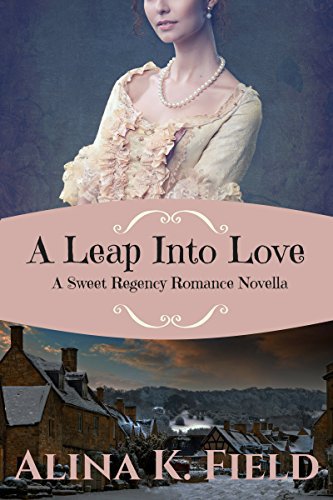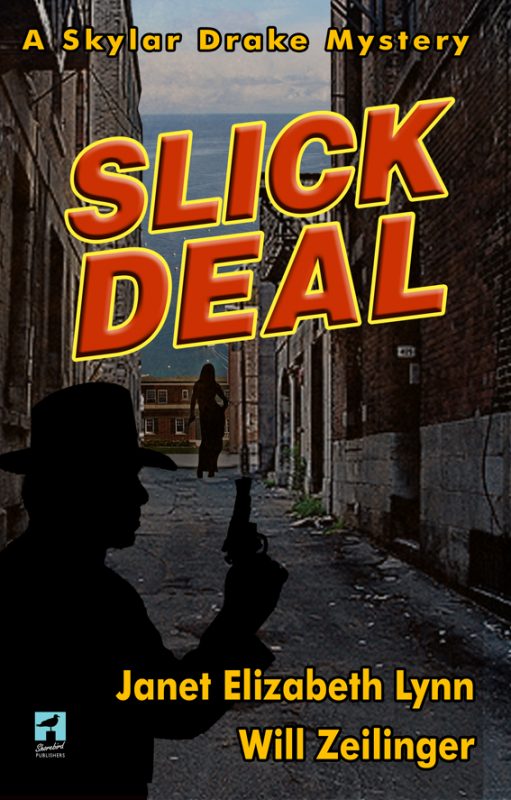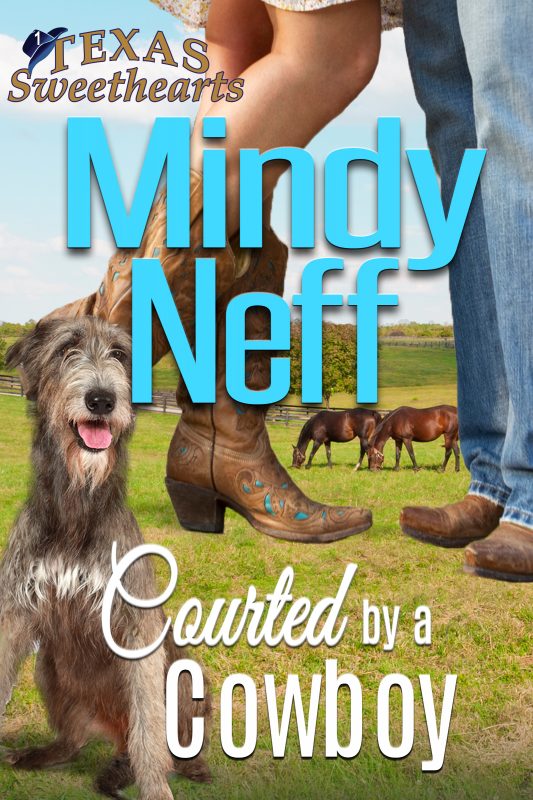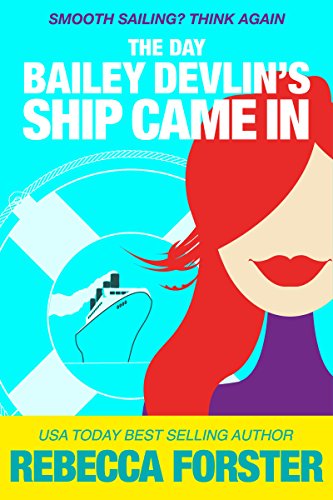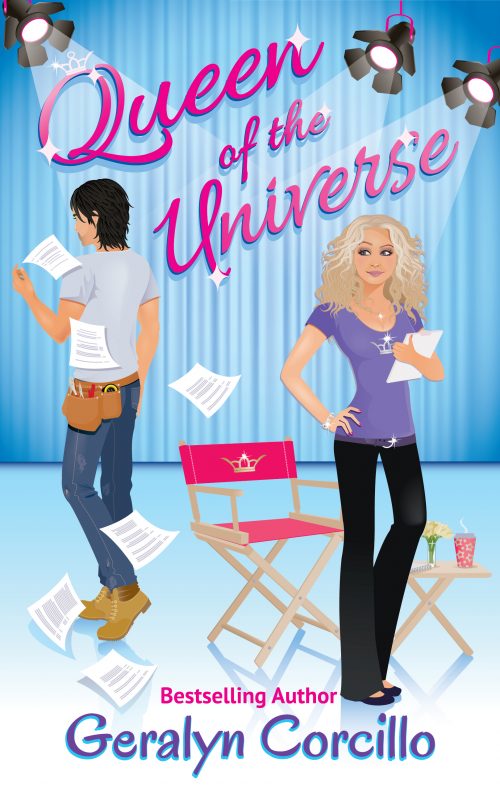What is a Novel? by Jina Bacarr
September 11, 2010 by A Slice of Orange in category Archives tagged as author, bird, Confessions of a Podcast Goddess, Italian, Italy, Jina Bacarr, novels, perfume, scent, Venice, writingA novel is like my friend, Uccello.
Writing is a solitary profession and taking a break from sitting at my computer is important to me. I like to walk. Every day I walk through a park on my way to the beach, smelling the flowers, enjoying the shade of the trees and listening to the birds singing.
One bird in particular captured my attention. He doesn’t sing better than the others, he’s not prettier, and he doesn’t fly in a soaring pattern. But we’ve formed a bond, Uccello and me.
I call him “uccello” (bird in Italian) because he reminds me of the birds singing outside my hotel window in Venice. I fell in love with the magical city with all its sights and smells when I spent time in Italy speaking and performing about Body & Eros at La Biennale dance festival.
Watch a short clip of the view from my window in Venice, Italy.
Seeing Uccello every day takes me back to Venice and reminds me of the evocative perfume I inhaled there.
I learned to recognize Uccello from the other birds, little things about the charcoal grey bird that caught my eye. He has a little white belly that wiggles when he preens himself like a de’ Medici grand duke and his chirping is short and musical like breathy notes on a flute. He follows me through the park, flitting from one perch to another, poking his head around to see if I’m dallying.
I’ve gotten to know his idiosyncrasies, like how he chirps twice when he sees me, then how he likes to show me what path to take by flying in front of me. The park has many winding pathways and I look forward to seeing where he’ll lead me on my walk each day.
To me, a novel is like Uccello. Something about it attracts your eye–it could be the title or the cover–you get closer, open up the book and it takes you on a journey. As you follow its winding paths, you breathe in its uniqueness. That’s part of the fun for me. I like to inhale the scent of the story.
It’s not something you can smell in a physical way, but it evokes an odoriferous response in you that makes you aware of the scents the author has created in their world, whether it’s fragrant roses, the salty sea, cinnamon, oil, pine cones, or the smell of sex.
The next time you read a novel, think about what you smell. It may surprise you.
I’m off to see Uccello.
Want to come along? It’s easy.
Open a novel and join us.
Best,
Jina
The Blonde Samurai: “She embraced the way of the warrior. Two swords. Two loves.â€
Jina Bacarr is also the author of The Blonde Geisha ,Cleopatra’s Perfume, Naughty Paris, Tokyo Rendezvous, a Spice Brief, and Spies, Lies & Naked Thighs
visit my website: http://www.jinabacarr.com/
Let’s hear it for the heroines
September 8, 2010 by A Slice of Orange in category ArchivesLately I’ve been thinking—and talking and blogging—about romance novel heroines. Usually it’s heroes who take over the limelight in any discussion of characters. Dark hair or blond? Cop or sheikh? Cowboy or bad boy? We all have our preferences, and we’re not afraid to state ’em.
But when I read a romance, it’s just as important (well, almost) that I like the heroine. Love her, even. After all, she needs to be worthy of that fantastic hero, and I want to be sure she’ll make him as happy as he makes her. Which isn’t going to happen if she’s, say, whiny. Or selfish. Or dull.
There’s a theory that when you read a romance novel, you “become†the heroine. Subconsciously, you put yourself in her place, experience her trials and her delights. Which makes it all the more important for the heroine to be someone you like.
I like my heroines strong, but with a sweetness of character that reminds the hero just how churlish he’s being. A great heroine knows what she wants and is willing to work for it. Intelligent – very! Honest and principled, too (though she may at some stage have to fake an engagement, pretend her marriage of convenience is for real, or pose as the hero’s girlfriend…all in a day’s work for even the most honest heroine).
What I don’t want is a perfect heroine: never having a mean thought, always sacrificing ungrudgingly for others (if you’re going to sacrifice, it’s more realistic to begrudge it!), endlessly patient. As for the heroine who refuses to accept the gorgeous designer dress purchased for her by the super-rich hero…what’s that about? No, my kind of heroine is also a pragmatist…one who likes nice clothes even if she’s not always sure how to choose them.
So who are these non-paragons I love to read about?
Susan Elizabeth Phillips has written a few of my favorite heroines: Annabelle in MATCH ME IF YOU CAN, Daisy in KISS AN ANGEL and Jane in NOBODY’S BABY BUT MINE. I loved Maggie in Kristan Higgins’ CATCH OF THE DAY. Karina Bliss wrote a wonderful librarian in WHAT THE LIBRARIAN DID.
Becky Brandon nee Bloomwood (aka SHOPAHOLIC) is a heroine I loved more in the subsequent books than in the first one, but I’ve adored her through five books.
Georgette Heyer’s heroines deserve a special mention. She wrote so many delightful women (or girls). Warm and funny Arabella and Venetia in the eponymous novels, Mary in DEVIL’S CUB (feistier than the hero could ever have dreamed), wry and creative Hester in SPRIG MUSLIN, courageous Phoebe in SYLVESTER.
If you can recommend a great heroine whose story I can add to my To Be Read pile, I’d love to know!
When Opportunity Knocks, Answer the Door
August 28, 2010 by A Slice of Orange in category Archives“Everything comes to those who hustle while they wait.†–Thomas Edison
I got that quote in a writing workshop years ago and have it hanging on the wall above my desk. I think it really defines the business of being a writer.
Much of the writing business involves waiting. The wheels of publishing turn very slowly, and a writer who wants to be successful in publishing has to make the best of time while waiting for that response from the agent or editor or that contract or that check. Now you can hang out in front of the TV for the weeks it might take to get that call or that contract or that check—or you can use that time to make things happen in your career while you wait.
Becoming and staying published is partly about good writing, partly about determination, and partly about luck. Now a writer can learn her craft, and she can doggedly do her research about the market. That takes care of good writing and determination. But what about luck?
What some people call luck, I call opportunity. And opportunities abound for those who are watching for them. The trick is having the courage to jump on the chance when it comes around.
Chances to move your career forward happen every day, and I firmly believe that half of them come for the writer who does everything she can to make something happen. How do you do that? Put yourself in the way of potential opportunity whenever you can. Hustle while you wait!
Networking is one way to do this. Get to know people. The more contacts you make, the more chances you have of hearing the newest market news as soon as it hits the grapevine. Facebook, Twitter, writers meetings, email loops…there are tons of ways to network without going too far from home. Also, the more people you know, the more people you will get to meet as your friends introduce you to their friends.
Get involved with your chapter. Not only will you get to know other members, but holding a position on the board or a committee could put you in a position to meet visiting industry VIPs face-to-face. Great networking opportunity!
Enter contests. Contests are subjective, but there is always a chance that you might make the finals and have your manuscript end up in front of the agent or editor of your dreams. That’s the best case. Worst case scenario is that your work is read by two or more skilled judges who can provide valuable feedback. Sounds like a win-win situation to me!
Go to conferences. I can’t tell you how many people I have met at conferences over the years. My favorite thing to do is sit in the lobby at RWA and watch people go by. You’d be amazed how many people you can meet, or, in the case of a bestselling author or other industry professional, just get a look at. Recognizing someone’s face could prove valuable at a later time. I love meeting people!
A lot of writers attend conferences because of the editor/agent appointments. This is another kind of opportunity, one that you helped bring about because you paid the fee and went to the conference. At the appointment, you have about eight minutes to make the editor/agent fall in love with your concept and request to see the work. Here’s the thing about appointments: if your book isn’t done, don’t request an appointment.
The editors have a job to do filling their publishing schedules with the hottest works they can find, and the agents are looking for new clients whose work they think they can sell. So many times these people get excited about someone’s pitch and eagerly await the work, but it never arrives. Why? The book wasn’t done. Or the author got cold feet. Make sure when you request an appointment that you have something to sell, something that could be put in the mail as soon as you get home—something you intend to put in the mail when you get home. Be a professional and follow through with what you pitched.
Get involved in your own career. Go places, take classes, meet people. It’s the best way to make sure that when opportunity knocks, you’ll be waiting to open the door.
A Fantasy Life by Janet Quinn Cornelow
August 28, 2010 by A Slice of Orange in category Archives
I have been trying to get myself motivated to write. It hasn’t been going very well. I went to plot group this morning and five of the members had stories that they needed help with. It is always a great time. We meet about every six weeks and have breakfast, then work, then have lunch. Lots of eating. Lots of working.
I wasn’t one of the five with something to plot. Then I’ve plotted two stories and haven’t started either one of them. I did finally finish the contest I had running on my website. Other than that, I have managed to accomplish nothing when it comes to writing.
Maybe tomorrow when I go to lunch with Debra Young, my critique partner, I will get more inspired. I am setting a goal to start writing in September and writing every week. I’ll see how that goes.
Then it hasn’t been the best month. Rob’s wife lost the baby and everyone was very upset. This too will pass, but for the moment things are a bit unsettled.
September OCCRWA Online Class — Creating that Fatal (or Not So Fatal) Flaw with Laurie Schnebly Campbell
August 26, 2010 by A Slice of Orange in category Archives********** permission to forward **********
Hi everyone! Check out the exciting online classes offered by the
Orange County Chapter of RWA!
“Creating that Fatal (or Not So Fatal) Flawâ€
with Laurie Schnebly Campbell
September 6 – October 2, 2010
Giving likable, plausible characters a truly compelling conflict is easier with Enneagrams. Counselors and HR managers use this tool to identify the nine distinctive personality types — known as the Perfectionist, the Nurturer, the Achiever, the Romantic, the Observer, the Skeptic, the Adventurer, the Leader and the Peacemaker.
Each one has its own uniquely heroic and appealing traits, as well as a troublesome (if not fatal) flaw that will naturally bring them into conflict with other people…AND with themselves. Find out which strengths and weaknesses will make your characters’ lives more rewarding as they reach their happily-ever-after, and more challenging along the way!
There’ll be lectures and Q&A every weekday, as well as homework assignments every day or two. Homework, of course, is always optional — but people from previous sessions have said that Laurie’s comments on their work make this class unusually helpful in shaping believable characters as well as intriguing plots.
About the Instructor:
Laurie Schnebly Campbell loves speaking to writers about psychology issues that draw on her background as a counseling therapist AND a romance novelist who beat out Nora Roberts for Best Special Edition of the Year. She’s taught workshops, live and online, for writers from New York to New Zealand and Los Angeles to London. In fact, she likes teaching so much that she chose her website (BookLaurie.com) so people would remember to Book Laurie for workshops.
Along with romance and how-to books for writers, Laurie writes scripts for videos and commercials at a Phoenix ad agency. She also enjoys teaching a catechism class, playing with her husband and son, vacationing in Sedona (the red-rock town named for her great-grandmother, Sedona Schnebly), narrating for Talking Books, and working with other writers. Laurie says, “People ask how I find time to do all that, and I tell them it’s easy. I never clean my house!”
Enrollment Information at http://www.occrwa.org/onlineclassSept10.html
COST: $20 for OCC members, $30 for non-members
Coming in October 2010–
“Mauled Men, Drowned Dames and Crispy Critters; a Body Disposal Primer for Writersâ€
with Jeanne Adams
October 11 – November 6, 2010
You’ve axed, shot or otherwise knocked off a key character in your latest book, now what? You have to do SOMETHING with the body! Find out everything you ever wanted to know about the pernicious particulars of body disposal and how to use minutiae of death to throw your characters together or drive them apart.
Jeanne P. Adams knows a thing or two about getting rid of a body, in reality as well as in books…her third book, Deadly Little Secrets (Zebra, Sept. 2010) is already being hailed as “One of the best Suspense Books of the Year!†by Romantic Times. She also is a multi-published non-fiction writer and consultant with twelve years of funeral business experience working both for a cemetery and several funeral homes. In her reading, she’s winced over a variety of mistakes dealing with the story’s dead guy (or gal), which led to this class!
COST: $20 for OCC members, $30 for non-members
Check out our full list of workshops. http://www.occrwa.org/onlineclasses.html
Want to be notified personally two weeks before each class? Be sure you’re signed up for our Online Class Notices Yahoo Group! Sign up at the bottom of http://www.occrwa.org/onlineclasses.html or send a blank email to OCCRWAOnlineClassNotices-subscribe@yahoogroups.com
********** permission to forward **********
Affiliate Links
A Slice of Orange is an affiliate with some of the booksellers listed on this website, including Barnes & Nobel, Books A Million, iBooks, Kobo, and Smashwords. This means A Slice of Orange may earn a small advertising fee from sales made through the links used on this website. There are reminders of these affiliate links on the pages for individual books.
Search A Slice of Orange
Find a Column
Archives
Featured Books
A LEAP INTO LOVE
Can a gentleman be too charming? The ladies of Upper Upton think so.
More info →SLICK DEAL
On the eve of the New Year, 1956, oil tycoon, Oliver Wright dies suspiciously at a swanky Hollywood New Years Eve party. Some think it was suicide.
More info →THE DAY BAILEY DEVLIN’S SHIP CAME IN
Oh, Boy! Oh, Bailey!
Just when you think it's going to be smooth sailing, Venus messes with your rudder.
QUEEN OF THE UNIVERSE
Can a charismatic TV writer convince her brooding handyman to star in her show in time to save her career?
More info →Newsletter
Contributing Authors
Search A Slice of Orange
Find a Column
Archives
Authors in the Bookstore
- A. E. Decker
- A. J. Scudiere
- A.J. Sidransky
- Abby Collette
- Alanna Lucus
- Albert Marrin
- Alice Duncan
- Alina K. Field
- Alison Green Myers
- Andi Lawrencovna
- Andrew C Raiford
- Angela Pryce
- Aviva Vaughn
- Barbara Ankrum
- Bethlehem Writers Group, LLC
- Carol L. Wright
- Celeste Barclay
- Christina Alexandra
- Christopher D. Ochs
- Claire Davon
- Claire Naden
- Courtnee Turner Hoyle
- Courtney Annicchiarico
- D. Lieber
- Daniel V. Meier Jr.
- Debra Dixon
- Debra H. Goldstein
- Debra Holland
- Dee Ann Palmer
- Denise M. Colby
- Diane Benefiel
- Diane Sismour
- Dianna Sinovic
- DT Krippene
- E.B. Dawson
- Emilie Dallaire
- Emily Brightwell
- Emily PW Murphy
- Fae Rowen
- Faith L. Justice
- Frances Amati
- Geralyn Corcillo
- Glynnis Campbell
- Greg Jolley
- H. O. Charles
- Jaclyn Roché
- Jacqueline Diamond
- Janet Lynn and Will Zeilinger
- Jaya Mehta
- Jeff Baird
- Jenna Barwin
- Jenne Kern
- Jennifer D. Bokal
- Jennifer Lyon
- Jerome W. McFadden
- Jill Piscitello
- Jina Bacarr
- Jo A. Hiestand
- Jodi Bogert
- Jolina Petersheim
- Jonathan Maberry
- Joy Allyson
- Judy Duarte
- Justin Murphy
- Justine Davis
- Kat Martin
- Kidd Wadsworth
- Kitty Bucholtz
- Kristy Tate
- Larry Deibert
- Larry Hamilton
- Laura Drake
- Laurie Stevens
- Leslie Knowles
- Li-Ying Lundquist
- Linda Carroll-Bradd
- Linda Lappin
- Linda McLaughlin
- Linda O. Johnston
- Lisa Preston
- Lolo Paige
- Loran Holt
- Lyssa Kay Adams
- Madeline Ash
- Margarita Engle
- Marguerite Quantaine
- Marianne H. Donley
- Mary Castillo
- Maureen Klovers
- Megan Haskell
- Melanie Waterbury
- Melisa Rivero
- Melissa Chambers
- Melodie Winawer
- Meriam Wilhelm
- Mikel J. Wilson
- Mindy Neff
- Monica McCabe
- Nancy Brashear
- Neetu Malik
- Nikki Prince
- Once Upon Anthologies
- Paula Gail Benson
- Penny Reid
- Peter Barbour
- Priscilla Oliveras
- R. H. Kohno
- Rachel Hailey
- Ralph Hieb
- Ramcy Diek
- Ransom Stephens
- Rebecca Forster
- Renae Wrich
- Roxy Matthews
- Ryder Hunte Clancy
- Sally Paradysz
- Sheila Colón-Bagley
- Simone de Muñoz
- Sophie Barnes
- Susan Lynn Meyer
- Susan Squires
- T. D. Fox
- Tara C. Allred
- Tara Lain
- Tari Lynn Jewett
- Terri Osburn
- Tracy Reed
- Vera Jane Cook
- Vicki Crum
- Writing Something Romantic
Affiliate Links
A Slice of Orange is an affiliate with some of the booksellers listed on this website, including Barnes & Nobel, Books A Million, iBooks, Kobo, and Smashwords. This means A Slice of Orange may earn a small advertising fee from sales made through the links used on this website. There are reminders of these affiliate links on the pages for individual books.



